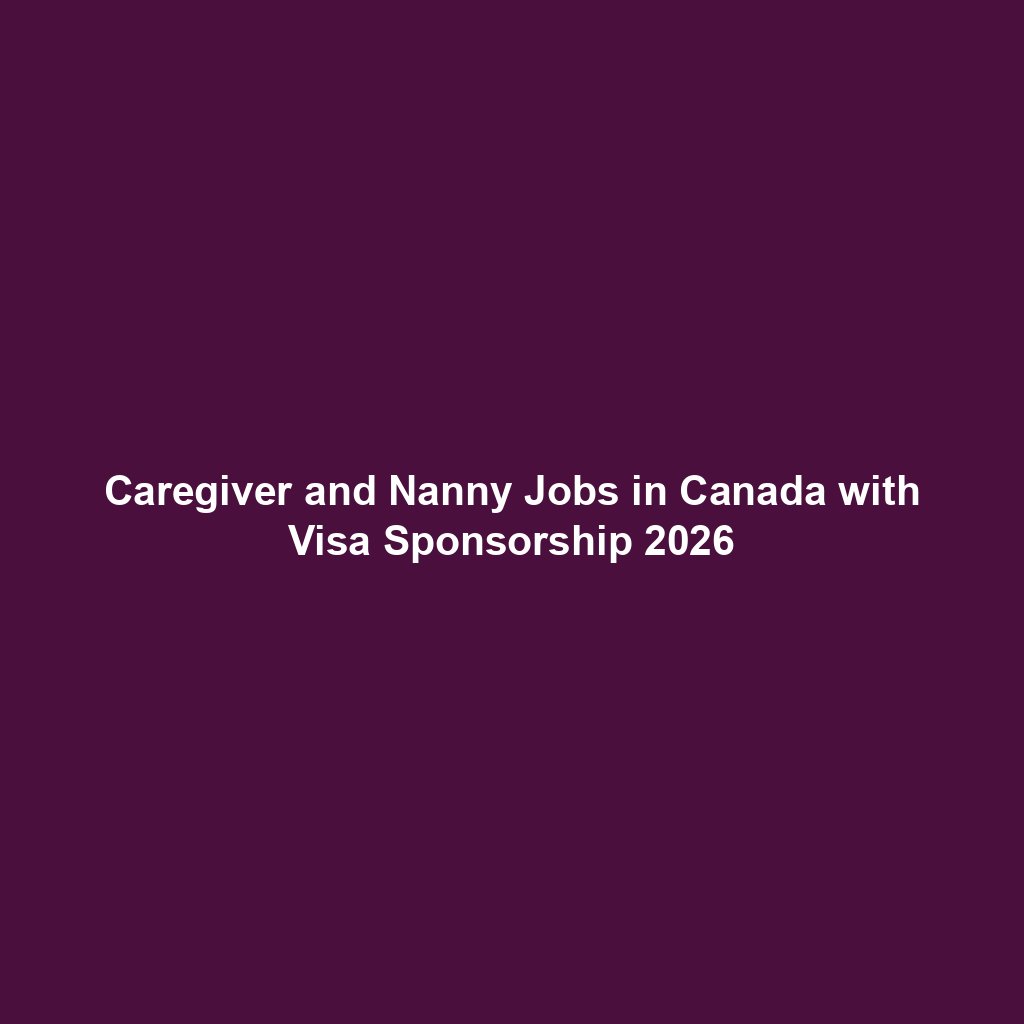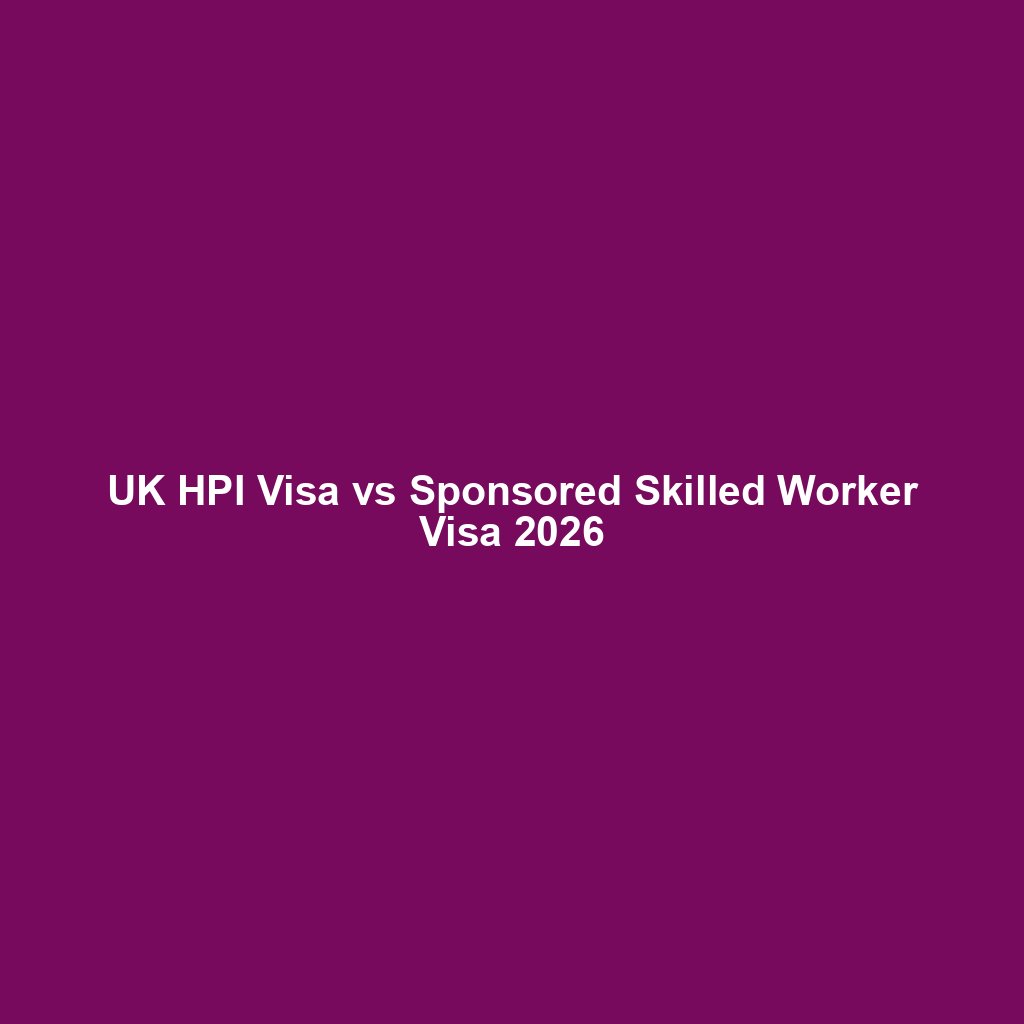Looking for caregiver and nanny jobs in Canada with visa sponsorship in 2026? Discover top opportunities, salary expectations, and a step-by-step guide on how to apply legally and relocate with ease.
Canada remains one of the best destinations for foreigners seeking employment in caregiving and nanny roles. With a rapidly ageing population and a strong demand for in-home child and elder care, employers across Canada are increasingly turning to foreign workers to fill these essential positions.
The Canadian government has created immigration streams and caregiver pilot programs specifically designed to attract compassionate and skilled caregivers and nannies from around the world. These roles not only offer legal employment with visa sponsorship, but also provide a pathway to permanent residency in many cases.
Whether you’re experienced in elderly care, childcare, or home support services, 2026 brings fresh opportunities to move to Canada and build a stable future. This guide breaks down everything you need to know—from top caregiver and nanny job opportunities, to how to apply and get sponsored, even from outside Canada.
Key Highlights
- 👩⚕️ High demand for foreign caregivers and nannies due to an ageing population and childcare needs
- 🌍 Visa sponsorship available through Canada’s Caregiver Pilot Programs and Temporary Foreign Worker Program (TFWP)
- 💼 Pathway to permanent residency after two years of work experience in eligible roles
- 💰 Competitive salaries and employment benefits
- 📌 Major cities hiring: Toronto, Vancouver, Calgary, Ottawa, Winnipeg
Types of Caregiver and Nanny Jobs in Canada in 2026
1. Childcare Nanny
Nannies provide in-home child care services, including supervision, homework help, light housework, and meal prep. Many Canadian families seek full-time, live-in or live-out nannies with overseas experience.
- Average Salary: CAD $30,000 – $45,000/year
- Visa Sponsorship: Yes, through Home Child Care Provider Pilot
- Top Hiring Locations: Toronto, Vancouver, Mississauga
2. Elderly Caregiver (Home Support Worker)
These caregivers assist seniors with daily living activities like grooming, bathing, feeding, mobility support, medication, and companionship. This is one of the most in-demand caregiving roles in 2026.
- Average Salary: CAD $32,000 – $50,000/year
- Visa Sponsorship: Yes, via Home Support Worker Pilot
- Top Provinces: Alberta, Ontario, Nova Scotia
3. Disability Support Worker
Support workers assist individuals living with physical or mental disabilities in their daily routines, helping them lead independent lives at home or in supported-living facilities.
- Average Salary: CAD $35,000 – $52,000/year
- Visa Sponsorship: Often offered under LMIA-approved employers
- Top Provinces: British Columbia, Manitoba, New Brunswick
4. Live-in Caregiver (General)
Live-in caregivers reside with the family or individual they care for. This is common for both elderly and child care. While not as common as live-out roles, some families offer accommodation and visa support in exchange for full-time care.
- Average Salary: CAD $28,000 – $40,000/year
- Visa Sponsorship: Yes
- Top Hiring Cities: Ottawa, Edmonton, Surrey
Available Visa Programs for Caregivers in Canada
Canada has special immigration pathways to hire foreign caregivers legally. These include:
1. Home Child Care Provider Pilot
For nannies or babysitters caring for children under 18 in their homes.
- Must have a job offer in Canada
- Work experience required: 24 months for PR
- English or French proficiency (CLB 5)
- Education: 1-year post-secondary diploma or equivalent
📍 Apply via: Home Child Care Provider Pilot – IRCC
2. Home Support Worker Pilot
For caregivers assisting seniors, persons with disabilities, or recovering patients.
- Same eligibility as above
- No employer LMIA needed
- Path to permanent residency
📍 More info: Home Support Worker Pilot – IRCC
3. Temporary Foreign Worker Program (TFWP)
Employers can hire foreign caregivers temporarily if no Canadians are available.
- Requires Labour Market Impact Assessment (LMIA)
- Shorter processing time
- Leads to work permit (not PR directly)
📍 Explore: TFWP Caregiver Stream
How to Apply for Caregiver and Nanny Jobs in Canada (with Visa Sponsorship)
Step 1: Prepare Your Resume and Credentials
Create a Canadian-style resume highlighting:
- Experience in caregiving or nanny roles
- First aid, CPR, or caregiver certifications
- Language proficiency (English/French)
- Valid international passport
It’s helpful to include recommendation letters from past employers or families.
Step 2: Search for LMIA or Pilot-Eligible Jobs
Use trusted job portals and search for terms like “Caregiver with visa sponsorship” or “LMIA caregiver jobs”:
Step 3: Apply to Verified Employers or Agencies
Apply only to employers with:
- Active LMIA or eligible for caregiver pilots
- Willingness to sponsor foreign applicants
- Registered business or verifiable family background
You can also apply through trusted caregiver staffing agencies:
Step 4: Attend Virtual Interview
Prepare for a video interview where you may be asked:
- Your caregiving experience
- Handling of emergency situations
- Willingness to relocate and live-in
Dress professionally and speak clearly.
Step 5: Receive Job Offer + Apply for Work Permit or PR
If hired:
- Under caregiver pilots: Apply for Open Work Permit and PR (if eligible)
- Under TFWP: Apply for Closed Work Permit using LMIA-approved job offer
You’ll need:
- Police clearance
- Medical exam results
- Proof of language test (IELTS or CELPIP)
- Proof of education
Step 6: Travel to Canada and Begin Employment
Once your visa is approved:
- Confirm flight and accommodation
- Report to employer and begin work
- Maintain contact with IRCC for PR status tracking (if applicable)
Salary Expectations for Caregiver & Nanny Jobs in Canada
| Role | Average Annual Salary (CAD) | Province with Highest Pay |
|---|---|---|
| Childcare Nanny | $30,000 – $45,000 | Ontario |
| Elderly Caregiver | $32,000 – $50,000 | Alberta |
| Disability Support Worker | $35,000 – $52,000 | British Columbia |
| Live-in Caregiver | $28,000 – $40,000 | Saskatchewan & Manitoba |
Key Takeaways
- Caregiver and nanny jobs are among the most accessible and rewarding opportunities in Canada for foreign workers.
- Canada offers structured immigration pathways such as the Home Child Care Provider and Home Support Worker Pilots, leading to permanent residency.
- Employers across Canada are looking for compassionate, hardworking caregivers and nannies, and visa sponsorship is often part of the hiring package.
- Start by creating a professional resume, finding LMIA-approved jobs, and applying through trusted portals or agencies.
- With the right steps, you can move to Canada, work legally, and build a long-term future in a supportive environment.
Conclusion
The demand for caregivers and nannies in Canada is growing faster than ever, especially in 2026. If you’re passionate about helping others, and want a stable, well-paying job in a safe and structured country, this could be the perfect opportunity for you.
With various immigration pathways, government-supported programs, and countless families seeking in-home support, now is the right time to apply. Don’t let lack of a university degree hold you back—what Canada values in this sector is compassion, dedication, and reliability.
👉 Start your journey today. Search for caregiver jobs, apply for sponsorship, and get ready to live and work in Canada. Your future begins now.
FAQs
1. Do I need a degree to become a caregiver or nanny in Canada?
No, but having a high school diploma or post-secondary education (1-year diploma) improves your chances. Experience and caregiver certifications are more important.
2. Can I bring my family with me as a caregiver in Canada?
Yes. Under the caregiver pilot programs, your spouse and dependent children can come with you. They may also be eligible to work or study in Canada.
3. How long before I get permanent residency as a caregiver?
You can apply for PR after 24 months of full-time work experience in an eligible caregiving role under the pilot programs.
4. Is IELTS required for caregiver jobs?
Yes, basic English or French proficiency is required. You’ll need a CLB level 5 in language tests such as IELTS General or CELPIP.
5. Are live-in positions mandatory for visa sponsorship?
Not always. Live-out positions are also accepted under the caregiver pilots. Some employers may still prefer live-in arrangements.






